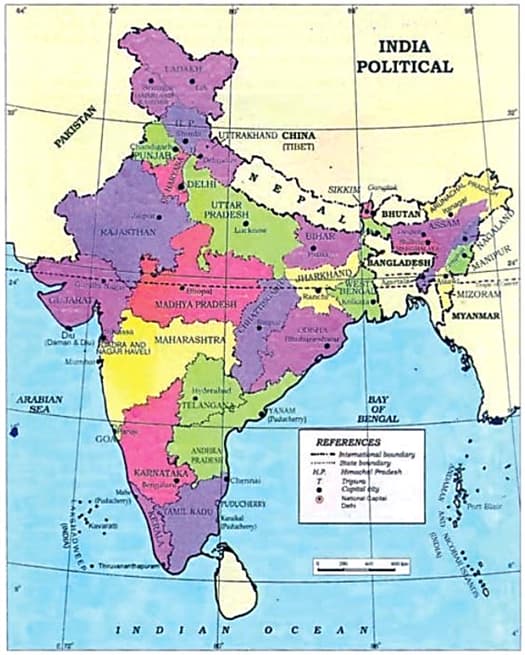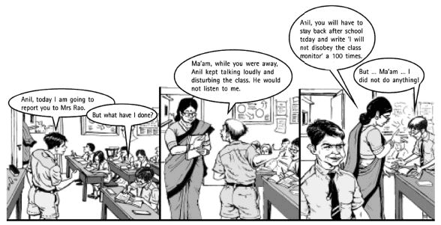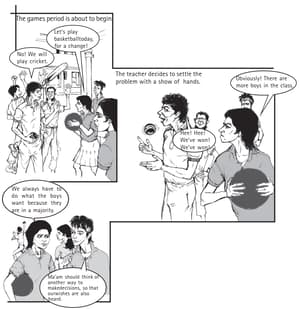
Write down the names of the Indian States, which share borders with the following neighbouring nations:
(a) Bangladesh
(b) Bhutan
(c) Nepal


Important Questions on The Indian Constitution

- In what way is the class monitor misusing his power?
Who is in a minority in the above storyboard?
In what way is this minority being dominated by the decision taken by the majority?
Which Fundamental Rights will the following situations violate:
a) A year-old child is working in a factory manufacturing carpets.
b) A politician in one state decides not to allow labourers from other states to work in his state.
c) A group of people not given permission to open a Telugu-medium school in Kerala.
d) The government decides not to promote an officer of the armed forces for being a woman.
Look at the wordings of the two documents given below. The first column is from the Nepal Constitution. The second column is from the most recent Constitution of Nepal.
| Constitution of Nepal Part : Executive. | Constitution of Nepal Part : Federal Executive. |
| Article : Executive Power: The executive power of the Kingdom of Nepal shall be vested in His Majesty and the Council of Ministers. | Article : Executive Power: The executive power of Nepal is, pursuant to this Constitution and law, vested in the Council of Ministers. |
What is the difference in who exercises 'Executive Power' in the above two Constitutions of Nepal?

